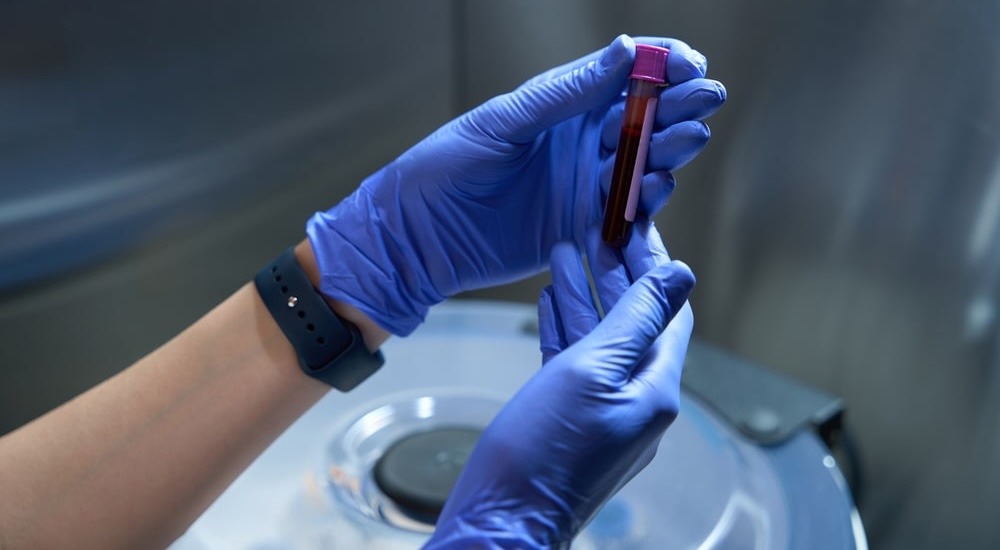How Often Should You Get Blood Work Done?
When was the last time you had your blood tested? Blood tests are essential for monitoring health and catching potential issues early. So, how often should you get blood work done? Most adults should aim for at least once a year, with more frequent testing for those with chronic conditions or specific health concerns.
In this guide, we’ll break down the factors that determine how often you should get blood tests, the standard tests you might encounter, and where to get blood work done. We’ll also provide practical tips, like how long you should fast before a blood test to ensure accurate results. Let’s dive into the details to help you keep your health on track.
Why Blood Work Is Important
Blood tests are more than routine procedures; they are vital tools for early detection of diseases, monitoring ongoing conditions, and helping your doctor make the best possible decisions for your health. A blood test at our urgent care facility can reveal signs of infection, anemia, diabetes, and conditions like high cholesterol or liver disease. Regular blood work can catch these issues before they become severe.
Factors That Determine Blood Work Frequency
The frequency of your blood tests depends on several factors:
- Age: As we age, our bodies change, and so do our health needs. People over 40 may need more frequent monitoring, especially for conditions like heart disease or diabetes.
- Medical History: If you have a family history of certain conditions, such as heart disease or cancer, your doctor might recommend more frequent testing to catch any early signs.
- Current Health Conditions: If you manage a chronic condition like diabetes, high blood pressure, or thyroid problems, you may need blood work done more often to monitor these conditions effectively.
- Medications: Some medications require regular blood tests to ensure they are working correctly and not causing harmful side effects.
- Lifestyle: Your lifestyle choices, including diet, exercise habits, and whether you smoke or drink, can influence how often you should have blood tests.
General Guidelines for Blood Test Frequency
While individual needs vary, there are some general guidelines on how often you should get blood work done:
- Annual Check-Up: Most adults should have a routine blood test during their annual check-up. This can include tests for cholesterol levels, blood sugar, and other primary health indicators.
- Every 3-5 Years: If you are in good health and have no ongoing medical conditions, a more comprehensive blood panel might only be necessary every 3-5 years.
- Twice a Year: Getting blood work done twice a year is often recommended for those managing chronic conditions or taking medications requiring monitoring.
- More Frequently: If you are experiencing symptoms that could indicate a health issue, such as unexplained weight loss, fatigue, or persistent pain, your doctor may suggest more frequent blood tests.
Common Types of Blood Tests
When you go for blood work, you’ll encounter several common types of blood tests:
- Complete Blood Count (CBC): This test measures the levels of different cells in your blood, including red blood cells, white blood cells, and platelets. It’s often used to diagnose conditions like anemia or infection.
- Lipid Panel: This test measures your cholesterol levels, including HDL, LDL, and triglycerides, helping assess your risk for heart disease.
- Blood Glucose Test: This test checks your blood sugar levels and is crucial for diagnosing and managing diabetes.
- Liver Function Tests: These tests measure different enzymes and proteins in your blood to assess liver health.
- Thyroid Function Tests: These tests measure how well your thyroid works and are essential for diagnosing thyroid conditions.
Preparing for Blood Work
Preparation for a blood test varies depending on the type of test you’re having. One common requirement involves fasting. You should know how long you need to fast before blood work to ensure accurate results.
- Fasting: For most tests that require fasting, you must avoid eating and drinking anything except water for 8 to 12 hours before the test. This typically applies to glucose tests and lipid panels.
- Hydration: Drink water before your test, as staying hydrated can make it easier to draw blood.
- Medications: Always inform your healthcare provider about any medications or supplements you take, as some may affect your test results.
Where to Get Blood Work Done
Finding a convenient place to do blood work is essential for maintaining your health. You have several options:
- Primary Care Physician: Your regular doctor’s office is often the most convenient place for routine blood tests, especially during your annual check-up.
- Laboratory Services: Many independent labs offer blood tests without a doctor’s visit. You can get your test done and have the results sent directly to your physician.
- Urgent Care Centers: If you need a test done quickly or outside of regular office hours, a nearby urgent care center is a convenient option.
- Hospital Outpatient Departments: Hospitals often have outpatient labs that can perform blood tests, especially if you need more specialized testing.
Understanding Your Blood Test Results
Understanding the results is the next step once you’ve had your blood work done. Your doctor will go over the results with you, but it’s helpful to have a basic understanding:
- Normal Ranges: Each test has a range of expected values. If your results are within this range, your health is generally stable.
- Abnormal Results: If your results are outside the normal range, it doesn’t necessarily mean a serious problem. Your doctor will consider the results in the context of your overall health.
- Follow-Up: If your doctor is concerned about any results, they may recommend follow-up tests or a change in your treatment plan.
Ready for a Health Check? Here’s What We Can Do
Taking control of your health means being proactive, and regular blood tests are a crucial part of that process. By knowing how often you should get blood work done, you can avoid potential health issues and ensure you are on the right track.
At Surfside Urgent Care of Laguna Beach, we understand the importance of keeping track of your health. That’s why we recommend getting blood work done regularly to catch any potential issues early. Our experienced medical professionals are here to guide you through the process and provide the highest level of care. Remember, your health is your most valuable asset—let’s ensure it stays in top shape.



